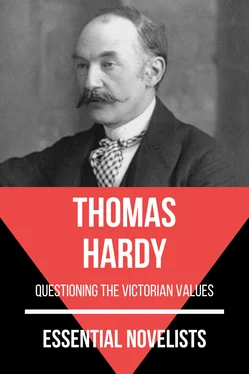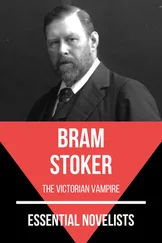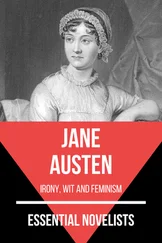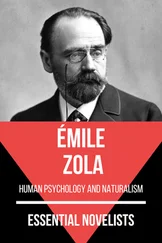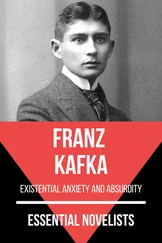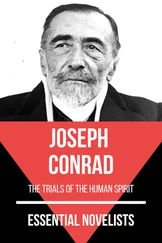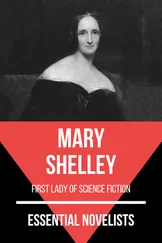Phillotson seemed not to notice, to be surrounded by a mist which prevented his seeing the emotions of others. As soon as they had signed their names and come away, and the suspense was over, Jude felt relieved.
The meal at his lodging was a very simple affair, and at two o'clock they went off. In crossing the pavement to the fly she looked back; and there was a frightened light in her eyes. Could it be that Sue had acted with such unusual foolishness as to plunge into she knew not what for the sake of asserting her independence of him, of retaliating on him for his secrecy? Perhaps Sue was thus venturesome with men because she was childishly ignorant of that side of their natures which wore out women's hearts and lives.
When her foot was on the carriage-step she turned round, saying that she had forgotten something. Jude and the landlady offered to get it.
"No," she said, running back. "It is my handkerchief. I know where I left it."
Jude followed her back. She had found it, and came holding it in her hand. She looked into his eyes with her own tearful ones, and her lips suddenly parted as if she were going to avow something. But she went on; and whatever she had meant to say remained unspoken.
JUDE WONDERED IF SHE had really left her handkerchief behind; or whether it were that she had miserably wished to tell him of a love that at the last moment she could not bring herself to express.
He could not stay in his silent lodging when they were gone, and fearing that he might be tempted to drown his misery in alcohol he went upstairs, changed his dark clothes for his white, his thin boots for his thick, and proceeded to his customary work for the afternoon.
But in the cathedral he seemed to hear a voice behind him, and to be possessed with an idea that she would come back. She could not possibly go home with Phillotson, he fancied. The feeling grew and stirred. The moment that the clock struck the last of his working hours he threw down his tools and rushed homeward. "Has anybody been for me?" he asked.
Nobody had been there.
As he could claim the downstairs sitting-room till twelve o'clock that night he sat in it all the evening; and even when the clock had struck eleven, and the family had retired, he could not shake off the feeling that she would come back and sleep in the little room adjoining his own in which she had slept so many previous days. Her actions were always unpredictable: why should she not come? Gladly would he have compounded for the denial of her as a sweetheart and wife by having her live thus as a fellow-lodger and friend, even on the most distant terms. His supper still remained spread, and going to the front door, and softly setting it open, he returned to the room and sat as watchers sit on Old-Midsummer eves, expecting the phantom of the Beloved. But she did not come.
Having indulged in this wild hope he went upstairs, and looked out of the window, and pictured her through the evening journey to London, whither she and Phillotson had gone for their holiday; their rattling along through the damp night to their hotel, under the same sky of ribbed cloud as that he beheld, through which the moon showed its position rather than its shape, and one or two of the larger stars made themselves visible as faint nebulæ only. It was a new beginning of Sue's history. He projected his mind into the future, and saw her with children more or less in her own likeness around her. But the consolation of regarding them as a continuation of her identity was denied to him, as to all such dreamers, by the wilfulness of Nature in not allowing issue from one parent alone. Every desired renewal of an existence is debased by being half alloy. "If at the estrangement or death of my lost love, I could go and see her child—hers solely—there would be comfort in it!" said Jude. And then he again uneasily saw, as he had latterly seen with more and more frequency, the scorn of Nature for man's finer emotions, and her lack of interest in his aspirations.
The oppressive strength of his affection for Sue showed itself on the morrow and following days yet more clearly. He could no longer endure the light of the Melchester lamps; the sunshine was as drab paint, and the blue sky as zinc. Then he received news that his old aunt was dangerously ill at Marygreen, which intelligence almost coincided with a letter from his former employer at Christminster, who offered him permanent work of a good class if he would come back. The letters were almost a relief to him. He started to visit Aunt Drusilla, and resolved to go onward to Christminster to see what worth there might be in the builder's offer.
Jude found his aunt even worse than the communication from the Widow Edlin had led him to expect. There was every possibility of her lingering on for weeks or months, though little likelihood. He wrote to Sue informing her of the state of her aunt, and suggesting that she might like to see her aged relative alive. He would meet her at Alfredston Road, the following evening, Monday, on his way back from Christminster, if she could come by the up-train which crossed his down-train at that station. Next morning, according, he went on to Christminster, intending to return to Alfredston soon enough to keep the suggested appointment with Sue.
The city of learning wore an estranged look, and he had lost all feeling for its associations. Yet as the sun made vivid lights and shades of the mullioned architecture of the façades, and drew patterns of the crinkled battlements on the young turf of the quadrangles, Jude thought he had never seen the place look more beautiful. He came to the street in which he had first beheld Sue. The chair she had occupied when, leaning over her ecclesiastical scrolls, a hog-hair brush in her hand, her girlish figure had arrested the gaze of his inquiring eyes, stood precisely in its former spot, empty. It was as if she were dead, and nobody had been found capable of succeeding her in that artistic pursuit. Hers was now the city phantom, while those of the intellectual and devotional worthies who had once moved him to emotion were no longer able to assert their presence there.
However, here he was; and in fulfilment of his intention he went on to his former lodging in "Beersheba," near the ritualistic church of St. Silas. The old landlady who opened the door seemed glad to see him again, and bringing some lunch informed him that the builder who had employed him had called to inquire his address.
Jude went on to the stone-yard where he had worked. But the old sheds and bankers were distasteful to him; he felt it impossible to engage himself to return and stay in this place of vanished dreams. He longed for the hour of the homeward train to Alfredston, where he might probably meet Sue.
Then, for one ghastly half-hour of depression caused by these scenes, there returned upon him that feeling which had been his undoing more than once—that he was not worth the trouble of being taken care of either by himself or others; and during this half-hour he met Tinker Taylor, the bankrupt ecclesiastical ironmonger, at Fourways, who proposed that they should adjourn to a bar and drink together. They walked along the street till they stood before one of the great palpitating centres of Christminster life, the inn wherein he formerly had responded to the challenge to rehearse the Creed in Latin—now a popular tavern with a spacious and inviting entrance, which gave admittance to a bar that had been entirely renovated and refitted in modern style since Jude's residence here.
Tinker Taylor drank off his glass and departed, saying it was too stylish a place now for him to feel at home in unless he was drunker than he had money to be just then. Jude was longer finishing his, and stood abstractedly silent in the, for the minute, almost empty place. The bar had been gutted and newly arranged throughout, mahogany fixtures having taken the place of the old painted ones, while at the back of the standing-space there were stuffed sofa-benches. The room was divided into compartments in the approved manner, between which were screens of ground glass in mahogany framing, to prevent topers in one compartment being put to the blush by the recognitions of those in the next. On the inside of the counter two barmaids leant over the white-handled beer-engines, and the row of little silvered taps inside, dripping into a pewter trough.
Читать дальше
